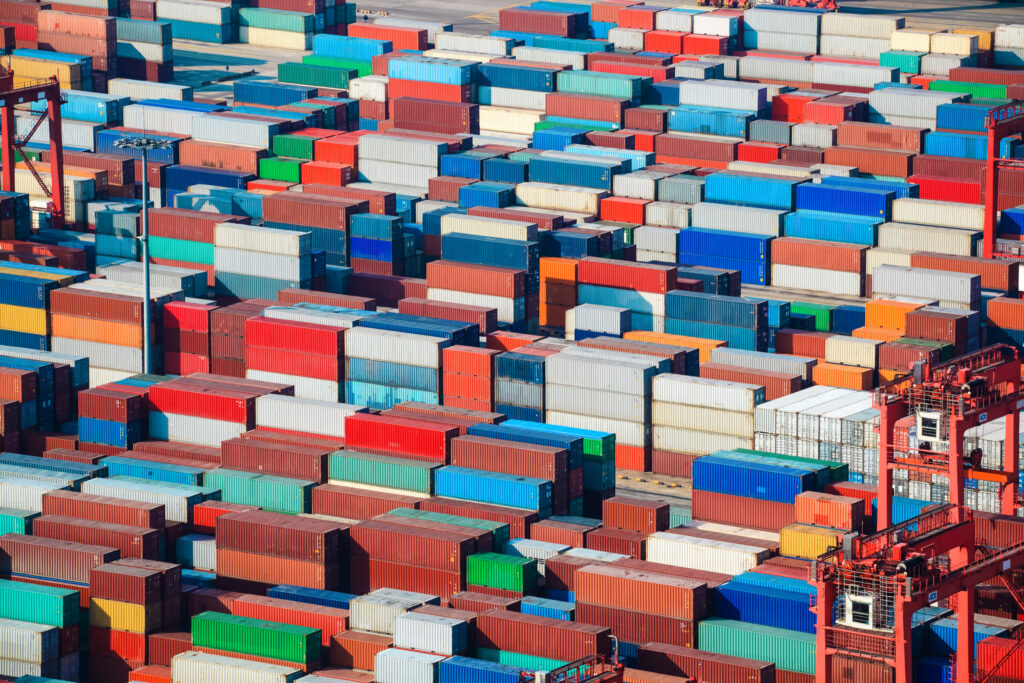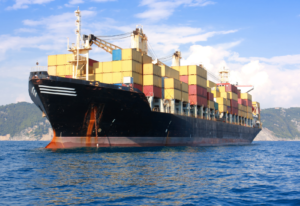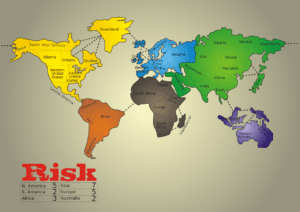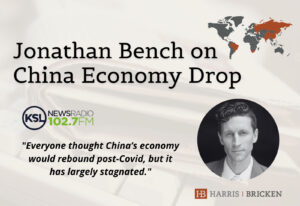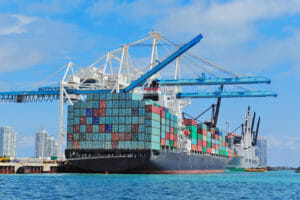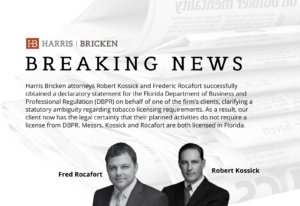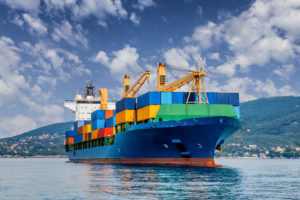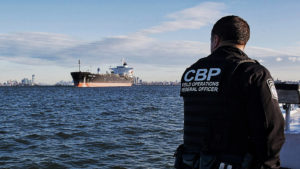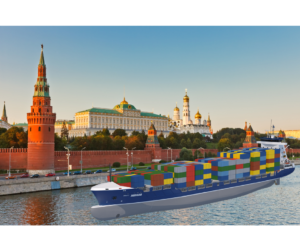Russia’s unprovoked and unjustified invasion of Ukraine, a sovereign and democratic nation, has shattered Europe’s long peace, cancelled the peace dividend bestowed by what was thought to be the end of the Cold War, and provoked widespread condemnation. With Ukrainian cities, towns, military bases, infrastructure, citizens, and refugees coming under what at times appears to be indiscriminate fire, the democratic nations of the West, led by the U.S., U.K., and E.U., have moved with unprecedented speed to impose an evolving set of economic sanctions, export controls (with respect to both dual use and military articles), and restrictions on Russian (and, to a lesser extent, Belarusian) officials, oligarchs, financial institutions, sovereign wealth funds, digital currencies, entities, vessels, aircraft, and other instruments of international traffic. Enhanced U.S. foreign direct product rules expand the potential impact of these measures to the extent they allow for secondary sanctions. Concomitant with the foregoing, a vast array of private sector companies and/or actors have matched the spirit of these measures by undertaking, on their own initiative, divestment (Shell, BP, Exxon Mobil, etc.), suspension/withdrawal (Apple, Google, Netflix, FedEx, American Express, Mastercard, McDonalds, Starbucks, Ikea, Walt Disney, Goldman Sachs, McKinsey, etc.), and/or cyber actions (Anonymous).
The scope, complexity, and fast-moving nature of these sanctions, controls, and restrictions, considered in conjunction with the retaliatory actions (including the contemplated nationalization of foreign assets) taken by Russia, are expected to increase trade compliance risk, disrupt global supply chains (more than they already have been by the COVID pandemic), and exacerbate the inflationary headwinds currently buffeting economies around the world. Members of the trade community that seek to avoid enforcement actions arising out of their business dealings in the region will need to step up their due diligence efforts, make certain that export compliance policies are up-to-date, impart any training necessary to ensure employees are fully abreast of current sanctions and controls, and, where appropriate, get in the habit of conducting sanction screening on a daily basis.
Though the economic sanctions, export controls, and restrictions noted above have been widely documented and reported on, the import-related measures undertaken by the U.S. and its allies in response to Russia’s aggression have generally, with the exception of the initial restraints placed on the purchase of goods and services from the Luhansk and Donetsk regions, received less attention. That began to change this past week, however, as the U.S. imposed strategically-targeted bans on the importation of oil, gas, coal, caviar, vodka, and diamonds, and the E.U. announced its intent to achieve a significantly reduced level of dependence on Russian energy by 2030. Notwithstanding the fact that the relatively small volume of Russian goods imported by the U.S. will limit the overall extent to which these measures can cause economic pain, other, more significant developments are in the works.
The first of these developments involves the introduction of legislation in both the U.S. and the E.U. to revoke, contrary to the fundamental principle in accordance which World Trade Organization (WTO) members operate, Russia’s Normal Trade Relations (referred to as Most Favored Nation, or MFN, outside the U.S.) status. Following Canada’s lead, the pending enactment of such measures will, both in the U.S. and the E.U., have the effect of subjecting Russian imports to substantially higher rates of duty (in the case of the U.S., Russian merchandise will become subject to the duty rate set forth in Column 2 of the Harmonized Tariff Schedule of the United States). These initiatives enjoy a broad measure of support in their respective countries and are expected to be quickly enacted into law.
Despite the fact that the revocation of Russia’s Normal Trade Relations status in the U.S. will increase the average duty on Russian merchandise from 3% to an estimated 33% (putting it on rough par with the 35% General Tariff Canada has imposed across the board on Russian imports), the impact of this action will, again, likely be more symbolic than meaningful given the relatively small amount of Russian goods imported by the U.S. (approximately $17B in 2020, most of which was concentrated in mineral fuels, precious metals and stone, iron and steel, fertilizers, and inorganic chemicals).
A quite different result attaches, on the other hand, when it comes to the E.U. With an estimated $105B of imported Russian merchandise in the balance, the E.U.’s termination of Russia’s Most Favored Nation status will deprive Russia of an important source of foreign exchange earnings and restrict the country’s downstream capacity for economic growth. To this end, a recent UCSD/St. Gallen study estimates that the imposition of a 35% duty by G-7 countries on Russian imports will shrink Russia’s GDP by 0.9% (reflecting, in turn, a loss of $13B to the Russian economy).
The second development now unfolding in the U.S. Congress is interesting in a prospective way and involves Senator Rob Portman’s “No Trading with the Invaders Act.” Borne of the current Ukraine crisis, this bill would, if enacted into law, revoke Normal Trade Relations status for any communist or formerly communist country that commits an act of aggression against another member of the WTO. Though this is not the first time the U.S. Congress has linked Normal Trade Relations status with a specific geopolitical issue or concern (past instances involve immigration and human rights), the timing and focus of this draft legislation are, in a way that could portend the shape of things to come, clearly intended to serve as an ambition-chilling shot across China’s bow with respect to the still unresolved issue of Taiwan’s independence.
The world is, from a security perspective, passing through a dangerous time. Never before, with the possible exception of the 1962 Cuban missile crisis, has the specter of WWIII loomed so large. This point is underscored by the decision of the Bulletin of the Atomic Scientists to advance the doomsday clock to 100 seconds to midnight, the closest to midnight it has ever been. At the same time, the world is, from a trade, investment, and finance perspective, moving into what is likely to be a protracted period of uncertainty and risk. The trade community must, as suggested above, remain vigilant, informed, and flexible as it adjusts import-export practices to this new normal.
That said, however, the world is not altogether in uncharted waters. Nor is this the world’s first rodeo when it comes to dealing with the unlawful aggression of autocratic despots. In fact, it could be argued that the democratic nations of the West have, through their collective historical experience, learned tough yet important lessons about (i) the futility of achieving enduring peace through appeasement, (ii) the challenge of attempting to deter and counter aggression through sanctions alone, and (iii) the effectiveness of using the power of the private sector to bring economic pressure to bear on malefactors.
The senselessly tragic situation playing out in Ukraine today is not that of the Sudetenland in 1938 or even, for that matter, Crimea in 2014. The imposition of multilateral sanctions has, with stunning swiftness, brought the Russian economy to its knees (the ruble has cratered, the stock market is entering its second week of suspended trading, and China appears to be increasingly reluctant to provide a lifeline out of concern for its own exposure to sanctions). Multinational corporations and other private sector actors have, through their self-initiated divestments and departures, communicated a resounding message of exasperation with and disapproval of Russia (with consequences which will likely take decades to undo). The Ukrainian military – a David to the Russian Goliath – is, on a daily basis, inflicting more extensive than expected casualties (including at the general staff level) on Russia’s poorly trained, supplied, and commanded troops. NATO, an organization whose military capabilities far exceed those of Russia, is more unified and prepared to engage Russia than at any prior point in its 72-year history. Finally, Russia finds itself more isolated, vulnerable, and divided than before the day its first tanks and infantry crossed into Ukrainian territory.
Viewed against this backdrop, there is a basis for thinking that the democratic nations of the West will seize this dark moment to break the alternating cycle of stability and crisis that has characterized world history since the Edwardian peace of the early 1900s. The death and destruction that has been wrought on Ukraine cannot, at this point, be undone – although the deep-willed Ukrainian military, aided by a motivated pool of civilian combatants and an International Legion of foreign volunteers, is far from finished with its defense and resistance. But, bigger picture, the nations of the free world can, if they succeed in channeling the “No Pasarán” spirit of times gone by in the way they now seem to be doing, draw a line that stops the Kremlin’s “Russkiy Mir” vision in its tracks and, by extension, serves to make other authoritarian dictators rethink their own extra-territorial ambitions.










